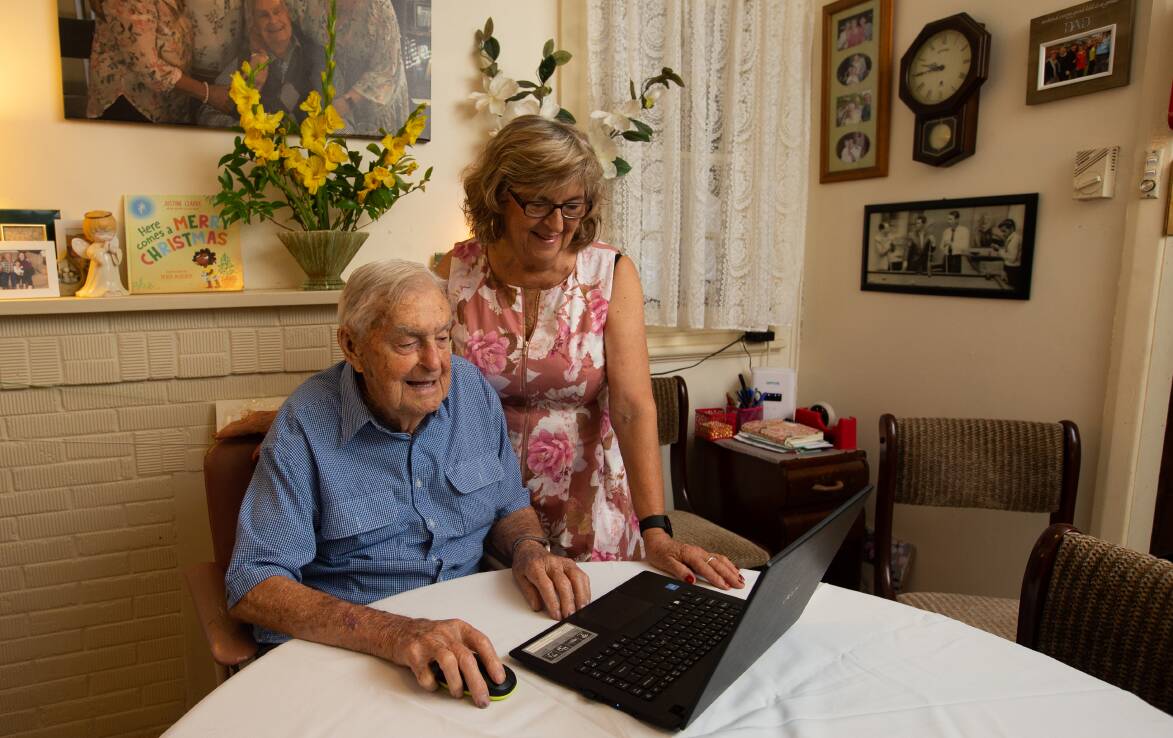
Nancy Stone has raised children, run the store that is now Goldbergs Coffee House and sung in choirs while dressed as the devil, or in a coconut bra and hula skirt.
But at 94, she feels invisible.
Ms Stone, of Merewether, is among the hundreds of Novocastrians feeling isolated by changing technology.
Daughter Louise Hislop said her mother "would not be able to" pay bills or make appointments without the help of her children.
"My mum was born in 1929. She hasn't worked in her profession as a hairdresser since I was a baby - that's nearly 70 years," Ms Hislop said. "She has us. What about people who don't?"
Ms Stone's health insurance and aged care service provider have not dealt with correspondence by mail since mid-2023. Ms Stone can not drive more than 10 kilometres from her home.
This has forced almost all of her admin tasks online and into the hands of her children, her daughter said.
The experience follows an anecdotal trend in the Hunter of services becoming digitised. Just before Christmas, the Elermore Vale post office was permanently closed.
Research from the Australian Communications and Media Authority in 2021 showed that, despite people over 65 being online more than ever before, 80 per cent of them still found technology "overwhelming".
Ms Hislop said she was concerned about the lack of "respect" for older people as digital services were rolled out in what she described as a "cost cutting" exercise, with limited help for users from large corporations.
"People aren't that interested in old people's problems. Old people are becoming invisible. I'm already becoming invisible and I'm 70 this year."
But across the Hunter, a different story is playing out: older residents are helping each other to embrace technology for admin and genuine networking.
Sandra Keen and her husband run Computer Pals, a group in Newcastle for seniors to learn tech skills together.
"The majority of people who come are wanting to learn how to use their smart phones, and how to do more than just making a call," Ms Keen said.
She agreed with Ms Hislop that older people were "panicking" because of how complicated interfaces were. Through step-by-step classes, her team works with users to answer their questions. Specific tools are pulled from Be Connected, a government initiative to improve digital literacy.
"There are a lot of little steps that maybe family haven't gone across with them, or have explained too quickly," Ms Keen said. "It is about working at a slower pace."
Ms Keen believed the key to learning technology was breaking each task into tangible steps and not making the user feel "silly".
"This can be a huge, new thing for people," she said.
Craig Browne, of Martinsville, is the co-founder of CCS Corporation, which is supported by the University of Newcastle and uses digital cards as conversation starters for older people.
"It helps people have [conversation with careers and family] beyond just 'did you have a good breakfast today?'", he said.
Mr Browne found getting nursing home residents to take up the cards had "not really been a problem" if users were not underestimated and taught to use the cards effectively.
"The simpler the better is important so that instruction is minimised," he said. "A genuine purpose and a genuine application that users feel like they are going to benefit from is [crucial]."
In both instances, these strategies have proved successful - far beyond unlocking new skills, they have created a close-knit community in nursing home and Computer Pals.
"More and more, I can see older people meaningfully joining in," Mr Browne said.
Suzanne Clarke, 75, is a carer for her father Jim, who is 97. Before attending Computer Pals, she felt "isolated and lonely".
"I thought about what I could do and what I could learn," Ms Clarke said. "I could do pretty basic things like email but I really didn't know much.
"Computer Pals are just so welcoming. I was just blown away ... I've been in it for about 14 months. People are patient and kind. It's just a safe learning environment and that's what I really, really love."
Ms Clarke said learning in "little segments" had helped her connect with friends and family online in a gradual, intentional way.
"It has absolutely created a social outlet," she said. "It feels a social need. We are learning as we go and we have a lot of fun."
But despite minimising social isolation, Mr Browne felt there was still a way to go in bridging gaps for older technology users in the Hunter when it came to practical skills.
Caring for his ageing father, he realised there was "no way" his dad could have signed himself up for aged care support.
"That is extraordinary, the amount of links and security checks that were required," he said.
Ms Hislop described this as "learned helplessness".
"Mum can dress herself and cook for herself. She lives alone but she can't pay [her own bills]. It's pretty isolating," Ms Hislop said, pleading for in-person services to remain.







